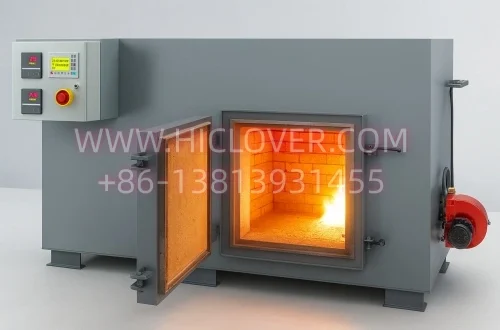Role of Medical Waste Incinerators in Modern Public Health Systems
In modern healthcare, the safe disposal of infectious and biomedical waste is as vital as diagnosis and treatment. Hospitals, clinics, and laboratories generate large volumes of contaminated waste daily. Without controlled destruction, these materials pose serious risks to public health through secondary infections, environmental pollution, and disease transmission. Medical waste incinerators therefore serve as an essential part of the public health defense chain.
1. Incineration as a Core Hygiene Barrier
Incineration ensures total sterilization of infectious materials such as used syringes, surgical disposables, and contaminated dressings. The combustion chambers of advanced models reach temperatures above 850C1100 °C, effectively destroying pathogens and reducing waste volume by up to 90%. This process prevents bacterial or viral survival, protecting hospital staff, waste handlers, and surrounding communities.
2. Integration into National Public Health Systems
Countries supported by WHO and UNDP have increasingly recognized incineration as a strategic requirement in hospital infrastructure. In regions with limited waste treatment facilities, containerized and mobile incinerators enable field hospitals, refugee camps, and rural clinics to maintain strict hygiene standards. HICLOVER has supplied such systems to over 40 countries―including Kenya, Tanzania, Iraq, and East Timor―helping national authorities align with WHO guidelines for infectious waste control.
Learn more: HICLOVER Industrial-Grade Incinerators
3. Medical Waste Sterilization and Air Pollution Control
Modern incinerators include dual combustion chambers, automatic burners, and wet or dry scrubber systems to minimize emissions. These technologies comply with international environmental standards while guaranteeing the complete neutralization of hazardous waste. For hospital settings, HICLOVER’s PLC-controlled units automate temperature regulation and waste feeding, ensuring consistent and safe operation.
Reference: Advanced Automatic Incinerators for Medical Waste Sterilization
4. Field Deployment and Emergency Response
During epidemic outbreaks or humanitarian missions, mobile and containerized incinerators play a crucial role. They can be rapidly deployed to isolate and destroy infectious waste near the source, preventing cross-contamination in crisis zones. HICLOVER’s modular TS150-PLC model, designed for remote environments, has been adopted in AMISOM and WHO field projects for its reliability and low fuel consumption.
Project reference: Incineration Solution for AMISOM Camp
5. Sustainable Public Health Infrastructure
As nations expand healthcare systems after COVID-19, waste management is a cornerstone of sustainability. Incineration remains the most controlled and effective technology for high-risk waste treatment. Combining efficiency, mobility, and emission control, modern incinerators safeguard both the environment and population health―ensuring that hospitals are not just centers of healing, but also of biosafety.
Explore related technology: Custom-Made Medical Waste Incinerators for Hospitals and Clinics
HICLOVER
Supporting WHO and public health missions worldwide
www.hiclover.com
sales@hiclover.com

